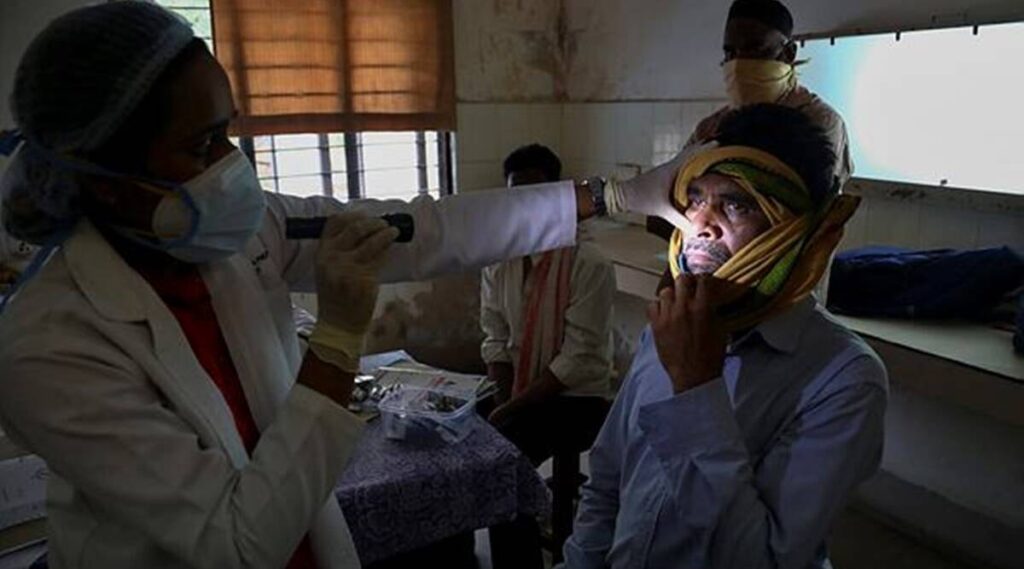
Mucormycosis has been confirmed in at least 7,250 people in India, but the true extent of the disease’s spread is unknown. Authorities in several states have now issued a warning about the rare life-threatening disease that is rapidly spreading across the country as a Covid-19 complication.
“We have asked states to add mucormycosis as a notifiable disease under the epidemic diseases act as in a communication to states yesterday (Wednesday). Doing so makes it mandatory for all hospitals to report cases so that we can consolidate data about it, and also ensures the screening, diagnosis and treatment is followed as per protocols of the Union government and Indian Council of Medical Research (ICMR),” said Lav Agarwal, joint secretary, Union health ministry, during a routine press briefing.
On Thursday, the Centre told the Delhi high court that there were 7,251 people with mucormycosis in India as of May 19, with 200 of them in Delhi.
Mucormycosis is a fungal infection that has a 50 percent mortality rate. Experts and doctors say thousands have now contracted the disease as a result of an overuse of steroids or immune system suppression, which is often a result of attempts to stop the life-threatening immune overreaction caused by Covid-19.
These infections are caused by fungal spores that are commonly found in abundance in the environment, according to ICMR director-general Balram Bhargava. “If a person’s immunity is suppressed, it will infect them. If the spores have access to high sugar, it will grow. We have seen this happen with Covid-19 patients with diabetes and uncontrolled sugar, or who are immuno-compromised or have been given immune-suppressants,” he added.
Several states are scrambling to place orders for the life-saving drugs needed, and a Union minister announced that production would be increased. The supplies of Amphotericin B, the only last-line drug that can treat it, are being distributed on the basis of caseloads, according to the Union government’s lawyers at the Delhi high court, which asked the Centre to submit a report on steps taken to import drugs for it. One of the petitioners mentioned the shortage of, and demand for, Amphotericin B while the court was hearing a slew of petitions for better Covid-19 management.
The Centre’s lawyers, Kirtiman Singh and Amit Mahajan, told the court that 3,150 vials were released to the Capital in three tranches between May 11 and May 20, according to the case load. Senior advocate Rahul Mehra, a lawyer for the Delhi government, responded that the expected weekly demand was 15,000 vials.
“Cannot talk about disease incidence as such but in our clinical life we would see maximum five to seven such patients in the intensive care units. It was rare,” said Dr Anjan Trikha, professor, department of anesthesia, critical care and pain medicine, AIIMS, Delhi on Thursday.



